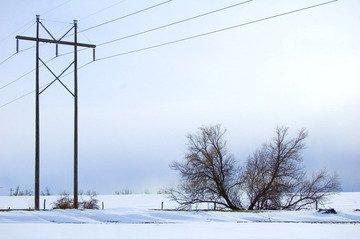

Up and down the East Coast, state lawmakers are fighting the Trump administration's efforts to allow natural gas and oil development in the Atlantic. These politicians recently adopted a novel tactic -- they're blocking construction of onshore pipelines, terminals, and other energy infrastructure that would be needed to process offshore natural gas and oil.
Blocking energy infrastructure projects deprives workers of good jobs and weakens our energy and national security. Energy infrastructure such as pipelines are also the safest, most reliable way to get energy from point A to point B -- energy that communities, families and businesses need to live their every day lives: driving to work, going to school, using their iPhones and cooking their dinner.
Immense energy wealth is expected to lie off America's coasts. The Outer Continental Shelf (OCS) -- the submerged federal territory beneath the Arctic, Atlantic, and Pacific Oceans and the Gulf of Mexico -- could contain as much as 90 billion barrels of oil and 328 trillion cubic feet of natural gas.
Tapping these energy deposits could support 730,000 American jobs and generate nearly $120 billion in cumulative tax revenues for the federal government over the next 20 years.
By opposing the infrastructure needed for offshore development, state lawmakers are kneecapping their local economies. And it’s not just our coastal states -- offshore development could help economies across the nation.
Energy companies have dramatically increased natural gas and oil production in recent years, while reducing their environmental footprint. Last year, we became the world's top oil producer, surpassing Russia and Saudi Arabia, while reducing U.S. CO2 emissions from energy sources to twenty-five year lows.
The failure to develop offshore resources and invest in infrastructure doesn't just weaken the U.S. energy revolution -- it also compromises our access to reliable and affordable energy, national security and also slows down environmental progress.
Consider the political opposition to the Access Northeast pipeline, which would have transported affordable natural gas throughout much of New England. The project would have brought $3.2 billion in private investments to local communities, created new jobs, and saved New Englanders $1 billion a year by reducing electricity bills.
But the Massachusetts Supreme Judicial Court ruled against the project in 2016, putting the entire region's energy security at risk.
When temperatures dropped and energy demand skyrocketed, New Englanders had no way to access U.S.-produced natural gas. In 2018 New Englanders turned to Russian liquefied natural gas.
It makes no sense to rely on nations like Russia or Venezuela for our energy needs -- especially when we have such immense natural gas and oil deposits available offshore.
America has been blessed with ample energy resources. But that means nothing if we don't develop our offshore resources and build the energy infrastructure needed to harness it.
Jim Nicholson served as Secretary of the Department of Veterans Affairs under the George W. Bush Administration, as well as U.S. Ambassador to the Holy See. This op-ed first appeared in Fox Business on www.foxbusiness.com.
=================